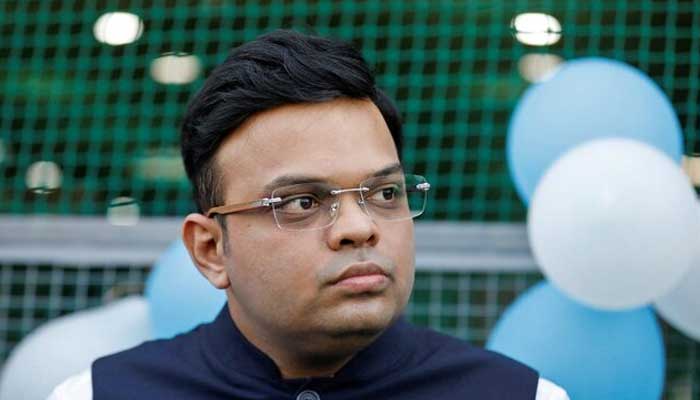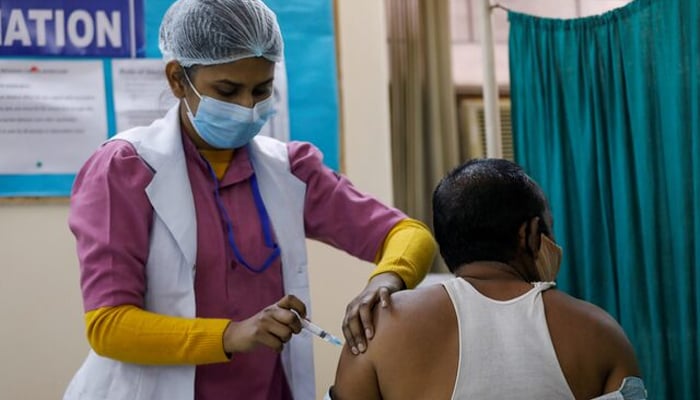
International community must ensure Afghan soil isn't misused for terrorism against its neighbours, says PM
October 16, 2024
ISLAMABAD: Prime Minister Shehbaz Sharif in his keynote address at the opening ceremony the Shanghai Cooperation Organisation (SCO) summit, said that the regional powers are at a historic moment of transition where sweeping transformations are reshaping the global, social, political, economic, and security landscape.
The 23rd meeting of the SCO Council of the Heads of Governments (CHG) — the highest-profile event hosted by the country in years — is being presided over by PM Shehbaz at the Jinnah Convention Centre in Islamabad.
Commenting on the diplomatic reverberations of the SCO summit, former ambassador Maleeha Lodhi said that Islamabad had significantly bolstered its international standing.
"By holding this summit, Pakistan's diplomatic position has strengthened globally. This is an important diplomatic moment for Pakistan as important leaders are attending the summit," said Lodhi while speaking on "Geo Pakistan".
Presiding over the meeting, PM Shehbaz said: "From the esteemed platform of the Shanghai Cooperation Organisation, a beacon of multilateralism, I stand in the belief that we possess not only the potential but the will to forge a future that is more prosperous and secure for our people.
"A future, that is inclusive, and reflective of the shared aspirations of all member states," the premier said while addressing the meeting.
He also noted that the regional powers were at a historic moment of transition where sweeping transformations were reshaping the global, social, political, economic, and security landscape.
Earlier, the premier welcomed the leaders at the venue, which was followed by a group photo.
The premier said that Afghanistan, by virtue of its contiguity with the region, presents an invaluable opportunity for trade and transit, benefiting all SCO member states.
"A stable Afghanistan, is not only desirable, but essential, to fully realising these opportunities," he added.
It may be noted that the neighbouring nation is part of the regional bloc. It holds the positon of an observer state but has been inactive since 2021, when the Taliban took over.
The premier called on the international community to step forward, with urgent humanitarian support for Afghanistan, while also urging its interim Taliban government to embrace political inclusivity to ensure that Afghan soil is not misused for terrorism against its neighbours by any entity.
As per the Foreign Office, the participants will discuss ongoing cooperation in the fields of economy and trade. Observers believe the bloc seeks to counter Western influence in the region.
China, Russia, Pakistan, Kazakhstan, Kyrgyzstan, Tajikistan, Uzbekistan, Belarus, Iran, and India are the member states of the Eurasian security and political group formed in 2001, while 16 other countries are affiliated as observers or "dialogue partners".
SCO claims to represent 40% of the world's population and about 30% of its GDP, but its members have diverse political systems and even open disagreements with one another.
The leaders from the member states attending the summit include China's Premier of the State Council Li Qiang, Prime Minister of Belarus Roman Golovchenko, Prime Minister of Kazakhstan Olzhas Bektenov, Russian Prime Minister Mikhail Mishustin, Tajik Prime Minister Kohir Rasulzoda, Uzbek Prime Minister Abdulla Aripov, Kyrgyzstan's Chairman of Ministers’ Cabinet Zhaparov Akylbek, and Iran's First Vice President Mohammad Reza Aref.
Indian Foreign Minister Subrahmanyam Jaishankar's participation at the event is a major highlight who touched down in Pakistan on Tuesday — marking the first such visit by an Indian FM in almost a decade amid frosty relations between the two nuclear powers.
Besides them, Mongolia is participating in the summit as an Observer State, represented by Prime Minister Oyun-Erdene Luvsannamsrai and Turkmenistan as Special Guest represented by Deputy Chairman of the Cabinet of Ministers Rashid Meredov.
Among other dignitaries attending the moot include SCO Secretary-General Zhang Ming, Director of Executive Committee SCO Regional Anti-Terrorist Structure (RATS) Ruslan Mirzayev, Chairman of the Board of SCO Business Council Atif Ikram Shaikh and Chairman of the Council of SCO Interbank Union Marat Yelibayev.
The largest delegation is from the Russian Federation. The Russian delegation arrived in Pakistan in two groups. Over 58 Russian journalists are part of the Russian prime minister's delegation.
The government has taken stringent security measures to ensure the smooth conduct of the SCO meeting. The capital city has been shut down for the two-day summit with more than 9,000 police officers deployed alongside security forces.
Roads have been blocked off, restaurants closed and public holidays announced in an attempt to restrict movement in the capital and the neighbouring city of Rawalpindi.
During today's event, the leaders will also adopt important organisational decisions to enhance cooperation among the SCO member states further and approve the budget of the Organisation.
After the statements by the participating leaders, the prime minister will deliver his concluding remarks following the signing of different documents by the participating leaders.
Afterwards, Deputy Prime Minister and Foreign Minister Ishaq Dar, along with SCO Secretary-General Zhang Ming will deliver media statements to discuss the highlights and outcomes of the two-day summit.
PM Shehbaz will also host an official luncheon today for the participating leaders.
Indian FM's rare visit
Jaishankar arrived at an airbase near Islamabad on Tuesday afternoon, where he was met by a low-level delegation, unlike other leaders who were welcomed by senior ministers.
Hours after his arrival, Indian FM Jaishankar was greeted by PM Shehbaz, with a handshake followed by an exchange of sombre expressions between the two at the start of an official dinner for the visiting leaders of the bloc.
Relations between the two nations have been particularly sour since 2019 when Indian PM Narendra Modi revoked the limited autonomy of Indian-administered Kashmir.
Modi's 2019 move led Islamabad to suspend bilateral trade and downgrade diplomatic ties with New Delhi.
Jaishankar's visit comes nine years after former Indian foreign minister Sushma Swaraj visited the country in 2015 for a summit on Afghanistan.
Touching upon New Delhi's participation in the summit, ex-ambassador Lodhi said: "India's foreign minister made it clear before coming to Pakistan that he was coming for a multilateral event and that he was neither interested nor intended to hold a bilateral interaction.
"I believe that Pakistan also has the same attitude. I believe that the ice will not melt between India and Pakistan. Our deadlock is too intense, and such a meeting cannot move the situation towards a breakthrough," she added.
It is to be noted that PM Modi made a surprise visit to Pakistan that year, shortly after taking office for his first term, sparking short-lived hopes of a thaw in relations.
Former foreign minister Bilawal Bhutto-Zardari was in Goa last year — also a rare visit — for an SCO meeting, where he and Jaishankar were involved in a verbal spat.
It was the first official visit by a senior Pakistani official to their eastern neighbour since 2016, but the two foreign ministers did not hold a one-on-one meeting.
The neighbouring governments have said that no bilateral meetings have been requested, and Jaishankar's visit will strictly follow the SCO schedule.
This is a developing story and is being updated with more details.



















